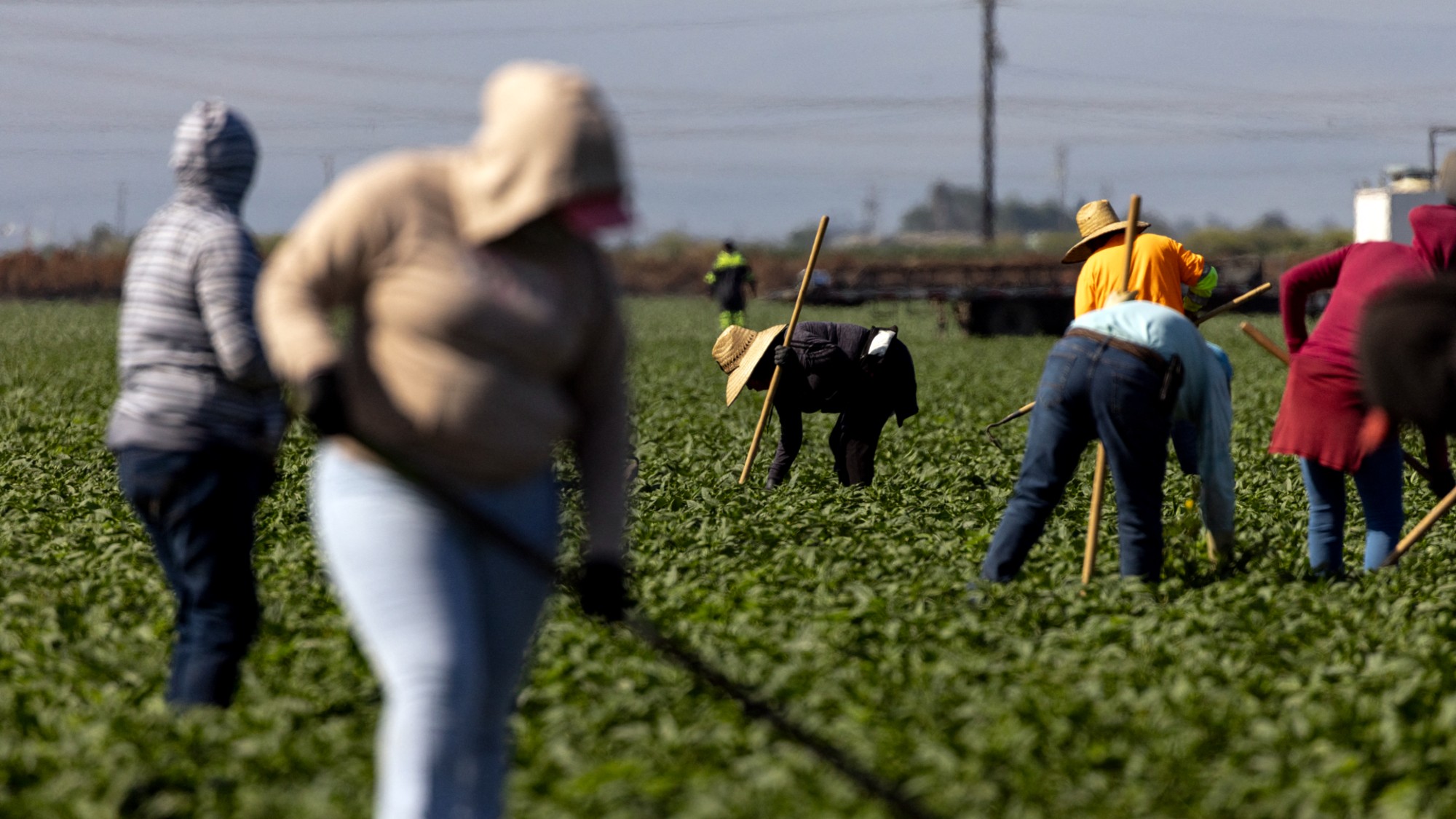Will the populists of the future try to smash the machines?
Here come the neo-Luddites


Donald Trump vows to stop American firms from offshoring jobs to Mexico and Asia. "Companies are not going to leave the United States anymore without consequences," the president-elect said after striking his recent deal with Carrier. "It's not gonna happen."
But what if the destination of choice isn't Monterrey or Shenzen but Robot City? Indeed, that's how the Carrier story is unfolding. The company is investing millions to automate its Indianapolis furnace plant, with machines eventually replacing some workers whose jobs were just saved.
No surprise here. Most of the multi-decade decline in factory jobs has been due to higher productivity from automation, not trade. But Trump, oddly, seems unconcerned. When asked whether he was worried that his policies would accelerate the rise of the robots, the president-elect offered a hand-waved "We'll make the robots, too."
The Week
Escape your echo chamber. Get the facts behind the news, plus analysis from multiple perspectives.

Sign up for The Week's Free Newsletters
From our morning news briefing to a weekly Good News Newsletter, get the best of The Week delivered directly to your inbox.
From our morning news briefing to a weekly Good News Newsletter, get the best of The Week delivered directly to your inbox.
Yet the economic logic — such as it is — of Trumpism seems to be that government should prioritize protecting a worker's current job over preparing him for today's volatile, churning labor market. Trump, however, doesn't seem to differentiate between globalization and automation.
Other populist politicians might. Imagine: What if technological progress gobbles up existing jobs as never before? Some of the scarier estimates — which I approach with some skepticism — show that most jobs will be threatened by automation over the next 20 years.
It's not hard to imagine an automation backlash. There's no rule that a society has to accept technological progress and all its accompanying disruption. Now a neo-Luddite scenario where politicians stir up or take advantage of automation fears may seem far-fetched. And it's certainly unlikely we smash the robots or erase the algorithms. But there could be pushback just the same.
There already is, and not just by the anti-GMO, anti-vaccine crowd. Efforts by incumbent taxi and hotel companies to rein in Uber and Airbnb are one form of technology backlash. Great Britain is experiencing its biggest railway strike in a generation as workers fear a move to get rid of train conductors will eventually result in trains being entirely automated. Liberal groups were aghast when fast-food CEO Andy Puzder, Trump's pick for U.S. labor secretary, professed his love of automation. A New York Times op-ed asks, "Google Wants Driverless Cars, but Do We?" Many truck drivers might be thinking the same thing.
A free daily email with the biggest news stories of the day – and the best features from TheWeek.com
There are also less direct ways to say no to tech progress. Maybe the backlash isn't against the machines, but the people who most visibly benefit from them. In San Francisco, highly paid knowledge workers have been blamed for higher rents and rising living costs, their billionaire bosses for worsening America's income and wealth inequality. Sure, Silicon Valley's innovation may drive economic growth, but what if most people don't benefit? Break up Google and Apple! As Bernie Sanders said during the campaign:
Where we've got to move is not growth for the sake of growth, but we've got to move to a society that provides a high quality of life for all of our people. In other words, if people have health care as a right, as do the people of every other major country, then there's less worry about growth.
Anti-trade arguments could easily morph into anti-technology arguments, or at least more generalized skepticism over faster economic growth.
In response, policymakers must make the pro-progress argument in favor of dynamism over the illusory security of stasis. Then they need to back that up with policies that help create an ecology for growth that is both rapid and widely shared. And, along with that, they must modernize the safety net so it provides a support system — portable health-care benefits, relocation subsidies, expanded workplace training programs. The Obama White House just released a big report, "Artificial Intelligence, Automation, and the Economy," that makes this point. Workers should not merely survive the inherent chaos of competitive capitalism — including both globalization and automation — but thrive from it.
James Pethokoukis is the DeWitt Wallace Fellow at the American Enterprise Institute where he runs the AEIdeas blog. He has also written for The New York Times, National Review, Commentary, The Weekly Standard, and other places.
-
 Mixed nuts: RFK Jr.’s new nutrition guidelines receive uneven reviews
Mixed nuts: RFK Jr.’s new nutrition guidelines receive uneven reviewsTalking Points The guidelines emphasize red meat and full-fat dairy
-
 Will regulators put a stop to Grok’s deepfake porn images of real people?
Will regulators put a stop to Grok’s deepfake porn images of real people?Today’s Big Question Users command AI chatbot to undress pictures of women and children
-
 ‘All of these elements push survivors into silence’
‘All of these elements push survivors into silence’Instant Opinion Opinion, comment and editorials of the day
-
 The billionaires’ wealth tax: a catastrophe for California?
The billionaires’ wealth tax: a catastrophe for California?Talking Point Peter Thiel and Larry Page preparing to change state residency
-
 Bari Weiss’ ‘60 Minutes’ scandal is about more than one report
Bari Weiss’ ‘60 Minutes’ scandal is about more than one reportIN THE SPOTLIGHT By blocking an approved segment on a controversial prison holding US deportees in El Salvador, the editor-in-chief of CBS News has become the main story
-
 Has Zohran Mamdani shown the Democrats how to win again?
Has Zohran Mamdani shown the Democrats how to win again?Today’s Big Question New York City mayoral election touted as victory for left-wing populists but moderate centrist wins elsewhere present more complex path for Democratic Party
-
 Millions turn out for anti-Trump ‘No Kings’ rallies
Millions turn out for anti-Trump ‘No Kings’ ralliesSpeed Read An estimated 7 million people participated, 2 million more than at the first ‘No Kings’ protest in June
-
 Ghislaine Maxwell: angling for a Trump pardon
Ghislaine Maxwell: angling for a Trump pardonTalking Point Convicted sex trafficker's testimony could shed new light on president's links to Jeffrey Epstein
-
 The last words and final moments of 40 presidents
The last words and final moments of 40 presidentsThe Explainer Some are eloquent quotes worthy of the holders of the highest office in the nation, and others... aren't
-
 The JFK files: the truth at last?
The JFK files: the truth at last?In The Spotlight More than 64,000 previously classified documents relating the 1963 assassination of John F. Kennedy have been released by the Trump administration
-
 'Seriously, not literally': how should the world take Donald Trump?
'Seriously, not literally': how should the world take Donald Trump?Today's big question White House rhetoric and reality look likely to become increasingly blurred
